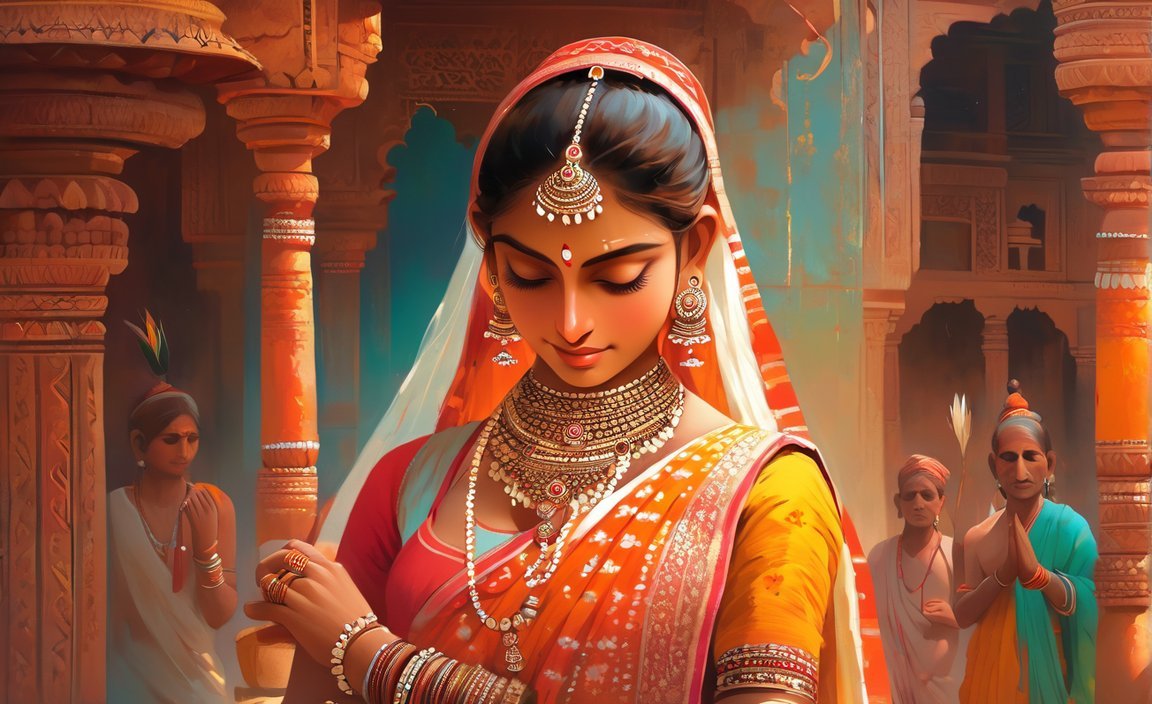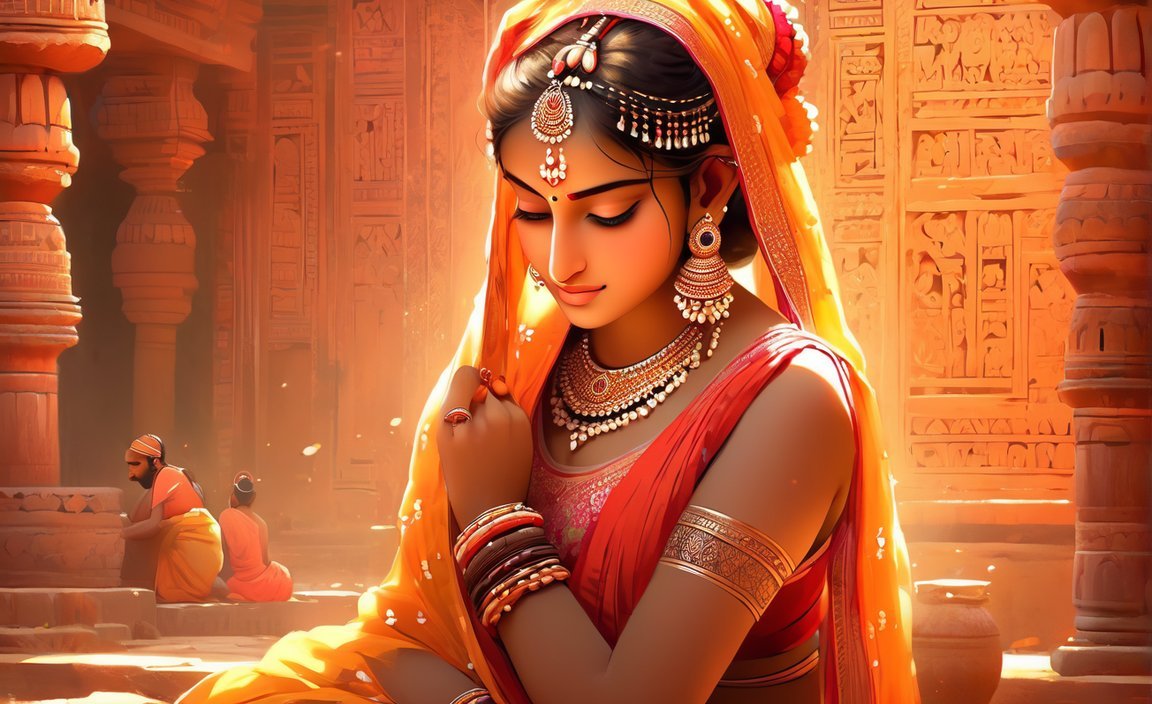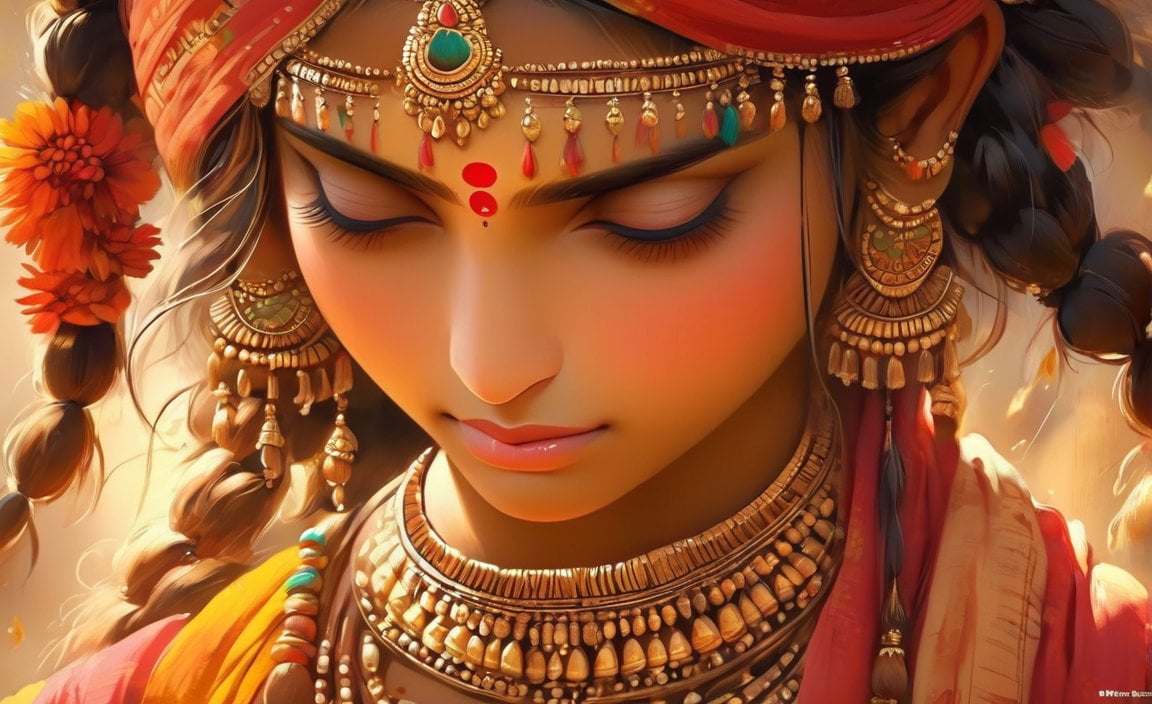Discover the 10 Fascinating Facts of Indian Culture, where we delve into the rich tapestry of customs, traditions, and intriguing aspects that make up the vibrant cultural landscape of India. From the mesmerizing diversity of languages and religions to the age-old traditions and colorful festivals, get ready to embark on a captivating journey through the heart and soul of this incredible country. Join us as we unravel the mysteries and unveil the hidden treasures of Indian culture, offering an insight into its customs, rituals, and fun facts that have shaped its fascinating history.

Key Takeaways:
Cows are considered holy: Cows hold a special place in Indian religious beliefs and are revered and protected.
Melting pot of religions: India is home to a diverse range of religious beliefs and practices, including Hinduism, Islam, Christianity, Sikhism, Buddhism, Jainism, and more.
Significance of fasting: Fasting is a common practice in India, associated with spiritual purification, self-discipline, and seeking blessings.
Sacred city of Varanasi: Varanasi is one of the oldest cities in the world and is considered a religious pilgrimage site in Hinduism, Jainism, and Buddhism.
Extravagant Indian weddings: Indian weddings are known for their grandeur, multi-day celebrations, intricate rituals, vibrant decorations, and lively music and dance performances.
Rich and diverse cuisine: Indian food culture offers a wide variety of flavors, spices, and ingredients, with each region having its own unique cuisine and culinary traditions.
Colorful apparel culture: Traditional Indian clothing, such as sarees for women and dhotis or kurta-pajamas for men, reflects the vibrant and diverse cultural heritage of the country.
Importance of right hand usage: In Indian culture, the left hand is considered unclean, and it is customary to use the right hand for all activities, including eating and offering or receiving items.
Emphasis on hospitality and guest culture: Indian culture values hospitality and considers guests as an honor, with families often inviting guests for meals and making them feel at home.
Religious diversity and tolerance: India embraces a wide range of religions, with Hinduism as the majority religion, and the coexistence of multiple faiths contributes to the cultural richness and tolerance of the country.
10 Facts About Indian Culture
India, known for its rich heritage and diversity, is a country brimming with fascinating cultural facts. Let’s delve into the vibrant tapestry of Indian culture and uncover 10 intriguing facts that make it truly unique.
1. Holy Cows and Religious Beliefs
Did you know that cows are considered holy in India? They hold a special place in the country’s religious beliefs. In Indian culture, cows are revered and protected, and harming a cow is considered extremely offensive.
2. The Melting Pot of Religions
India has rightfully earned its reputation as the home of almost all religions around the world. The country embraces a vast array of religious beliefs and practices, including Hinduism, Islam, Christianity, Sikhism, Buddhism, Jainism, and many more. This diverse religious landscape is a testament to the cultural richness of India.
3. Fasting for Spiritual Purification
Fasting holds significant religious importance in India. People observe fasts as a form of devotion to their respective religions. Fasting is associated with spiritual purification, self-discipline, and seeking blessings. It serves as a powerful means of connecting with one’s spiritual self.
4. Sacred Varanasi, the Oldest City
Varanasi, also known as Kashi or Benares, holds the distinction of being one of the oldest cities in the world. This sacred city is revered in Hinduism, Jainism, and Buddhism. Varanasi is famous for its ghats, which are steps leading to the river, and the mesmerizing Ganga Aarti ceremony held every evening.
5. Extravagant Indian Weddings
When it comes to weddings, India is known for its extravagance and grandeur. Indian weddings are often multi-day affairs filled with intricate rituals, vibrant decorations, elaborate attire, and lively music and dance performances. They symbolize the celebration of love, unity, and the coming together of families.
6. The Gastronomic Adventure of Indian Cuisine
Indian food culture is a true delight for the taste buds. With its wide variety of flavors, spices, and ingredients, Indian cuisine is a gastronomic adventure like no other. Each region of India boasts its own unique cuisine and culinary traditions. From aromatic curries and flavorful biryanis to crispy dosas and fluffy rotis, Indian cuisine offers a plethora of vegetarian and non-vegetarian dishes to tantalize the senses.
7. Vibrant and Colorful Apparel
The apparel culture in India is a vibrant reflection of its cultural diversity. Traditional Indian clothing includes sarees for women and dhotis or kurta-pajamas for men. Each region has its distinct traditional attire and styles, showcasing the rich tapestry of Indian fashion.
8. The Significance of the Right Hand
In Indian culture, the right hand is considered the clean hand, while the left hand is deemed unclean. Using the left hand for eating, offering or receiving items, or any other initiations is considered impolite. It is customary to use the right hand for all activities in order to maintain cleanliness and respect.
9. Embracing the Concept of Hospitality
Indian culture places great emphasis on the concept of hospitality and guest culture. Guests are treated with utmost respect and are considered an honor to host. It is common for Indian families to invite guests for meals and make them feel at home, showcasing the warmth and hospitality that defines Indian society.
10. Religious Diversity and Cultural Richness
Religious diversity is a hallmark of Indian culture, with all major religions coexisting peacefully in the country. Hinduism is the majority religion, followed by Islam, Christianity, Sikhism, Buddhism, Jainism, and various other faiths. This unique blend of religious diversity contributes to the cultural richness and tolerance that define India.
In conclusion, India’s cultural heritage is a treasure trove of fascinating facts and traditions. From the reverence of cows to the grandeur of Indian weddings, the diversity of Indian cultures and religions is truly mesmerizing. Embrace the spirit of India and immerse yourself in this enchanting tapestry of traditions, beliefs, and customs.
Sources:
1. Tusk Travel – Top 10 Interesting Facts about India and Indian Culture
2. Visit TNT – Top 10 Interesting Facts about India and Indian Culture
Check out these fascinating 10 facts about Indianapolis that will amaze you!
Discover the intriguing history and civilization of the Indus Valley Civilization with these 10 surprising facts.
Uncover the hidden gems of Prince Edward Island as you delve into these 10 remarkable facts.
Want to know more about the prestigious Princeton University? Click here to explore 10 fascinating facts!
Prepare to be captivated by these 10 incredible facts about Quebec, a destination full of history, culture, and charm.
Embark on a journey to discover 10 fascinating facts about Toronto that will leave you wanting to book your next trip!
Learn about the vibrant city of Toronto, Canada and its rich history by exploring these 10 captivating facts.
Unearth the spiritual wonders of Varanasi through these 10 mesmerizing facts that will ignite your curiosity.
Fun Facts About Indian Culture
Cows Are Considered Holy
In Indian culture, cows hold a special place and are considered sacred. They are deeply revered and respected as symbols of purity and abundance.
Religious Diversity in India
India is known for its incredible religious diversity. It is the birthplace of major religions like Hinduism, Buddhism, Jainism, and Sikhism. With a substantial Muslim population as well, India encompasses a harmonious coexistence of various faiths.
Fasting and Spirituality
Fasting holds a significant place in Indian culture and is often associated with religious observances. It is believed to cleanse the body and mind, offering spiritual purity. Indians practice fasting during festivals, religious ceremonies, and as a form of self-discipline.
Oldest Inhabited City: Varanasi
India is home to one of the world’s oldest continually inhabited cities, Varanasi. Situated on the sacred banks of the Ganges River, Varanasi is considered a holy city and a major pilgrimage site for Hindus. It is an epitome of spirituality and ancient traditions.
Extravagant Indian Weddings
Indian weddings are renowned for their opulence and grand celebrations. These joyous occasions extend over multiple days and involve elaborate rituals, vibrant attire, and sumptuous feasts. Indian weddings are a true spectacle of love, tradition, and festivities.
Diverse and Flavorful Cuisine
Indian cuisine is a gastronomic delight, renowned for its rich flavors and diverse regional specialties. With a wide array of spices, herbs, and unique cooking techniques, Indian dishes like curry, biryani, dosa, and samosas offer a tantalizing culinary experience.
Vivid Apparel Traditions
India boasts a vibrant textile and apparel culture. Each region has its distinct clothing style, with traditional garments like sarees, salwar kameez, and dhotis showcasing the richness and diversity of Indian fashion.
Left Hand and Cultural Beliefs
In Indian culture, the left hand is considered unclean and is not used for eating, giving or receiving items, or performing certain tasks. It is associated with personal hygiene and considered impure, while the right hand symbolizes cleanliness and is used for daily activities.
Hospitality and Respect for Guests
Hospitality is deeply ingrained in Indian culture, and guests are treated with utmost respect and honor. Being invited into an Indian home for a meal is considered a privilege, and guests are often treated to a warm and generous feast, showcasing the host’s hospitality.
A Melting Pot of Religions
India embraces a multitude of religions, including Hinduism, Islam, Christianity, Sikhism, Buddhism, Jainism, and more. This religious diversity has greatly influenced India’s culture and traditions, fostering a spirit of tolerance and mutual respect.
Key Takeaways:
- Indian culture holds cows in high regard, considering them holy symbols of purity and abundance.
- India is the birthplace of major religions, fostering religious diversity and coexistence.
- Fasting is a common practice associated with spirituality and purification in Indian culture.
- Varanasi, one of the oldest inhabited cities, is a holy pilgrimage site on the banks of the Ganges.
- Indian weddings are known for their lavish celebrations, with elaborate rituals and sumptuous feasts.
- Indian cuisine offers diverse flavors, thanks to spices and unique cooking techniques.
- The clothing traditions in India are diverse, with each region showcasing its distinctive style.
- Cultural beliefs associate cleanliness with the right hand and impurity with the left hand.
- Indian culture values hospitality and treats guests with respect and honor.
- India’s religious diversity contributes to its cultural richness and promotes tolerance.
Sources:
– Tusk Travel
– Visit TNT

FAQ
Q1: Why are cows considered holy in Indian culture?
A1: Cows are considered holy in Indian culture because they are seen as a symbol of purity and abundance. They are highly revered and protected, and harming a cow is considered extremely offensive.
Q2: What makes India known as the home of almost all religions around the world?
A2: India is known as the home of almost all religions around the world because it is a melting pot of diverse religious beliefs and practices. Hinduism, Islam, Christianity, Sikhism, Buddhism, Jainism, and many more religions coexist in India, contributing to its religious diversity.
Q3: Why is fasting significant in Indian culture?
A3: Fasting is significant in Indian culture as it is a way for people to show devotion to their respective religions. It is associated with spiritual purification, self-discipline, and seeking blessings. People observe fasts during festivals, religious ceremonies, and as a form of self-discipline.
Q4: What is the significance of Varanasi in Indian culture?
A4: Varanasi, also known as Kashi or Benares, holds great significance in Indian culture as one of the oldest cities in the world. It is considered a sacred city in Hinduism, Jainism, and Buddhism, and is a major pilgrimage site. Varanasi is famous for its ghats (steps leading to the river) and the Ganga Aarti ceremony.
Q5: How are Indian weddings different from weddings in other cultures?
A5: Indian weddings are known for their extravagance and grandeur. They are often multi-day affairs with intricate rituals, vibrant decorations, elaborate attire, and lively music and dance performances. Indian weddings are a celebration of love, unity, and the coming together of families.
















